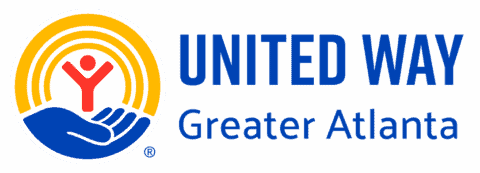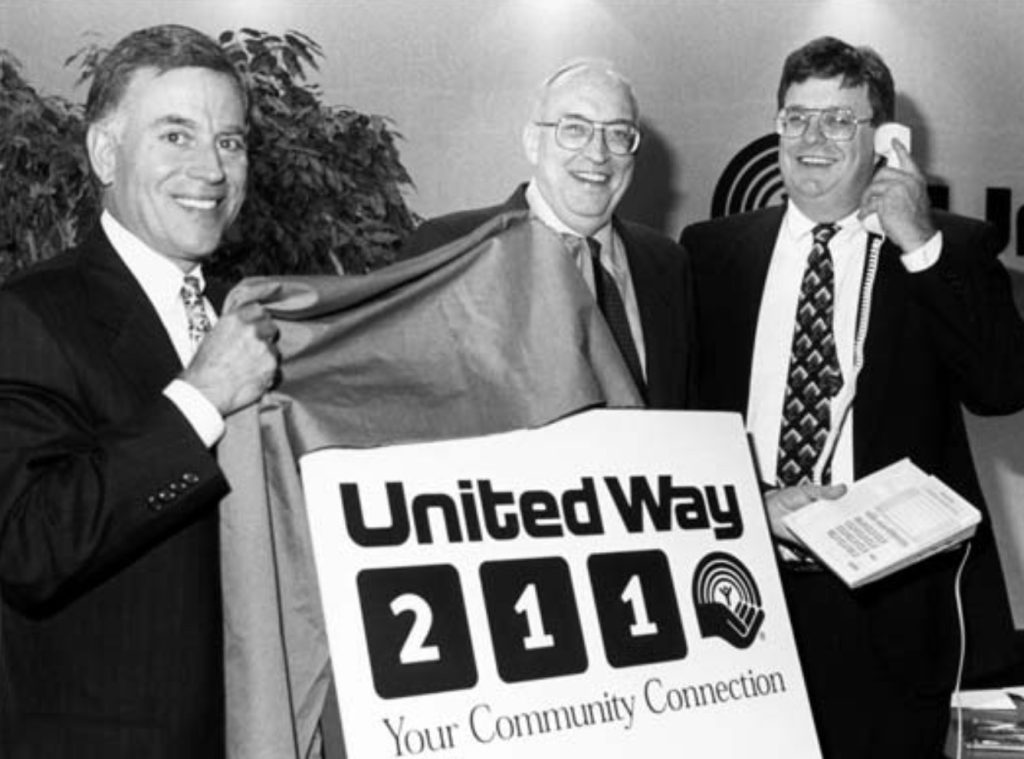Three digits are likely drilled into your memory—when in an emergency, call 911. Where do you turn though when it’s not an emergency, but you still need help?
The threat of utility shutoff may not have the same urgency as a medical emergency, but left without air conditioning, you still find yourself in an unhealthy situation. An eviction notice may not hold the same immediate danger as a house on fire, but facing the threat of homelessness, families will still feel the heat.
Since 1997, United Way of Greater Atlanta’s 211 Contact Center answers this question with a number just as easy to remember as its emergency-line cousin. Our free, confidential referral line acts as the first responder for neighbors in need of a bit of hope. Every day, 211 connects hundreds of people to resources for both urgent needs and everyday challenges.
Donna Burnham remembers what it was like when the three digits 211 were officially assigned by the Georgia Public Service Commission in 1997. She was working on the phone lines at 211’s precursor information referral system, First Call for Help.
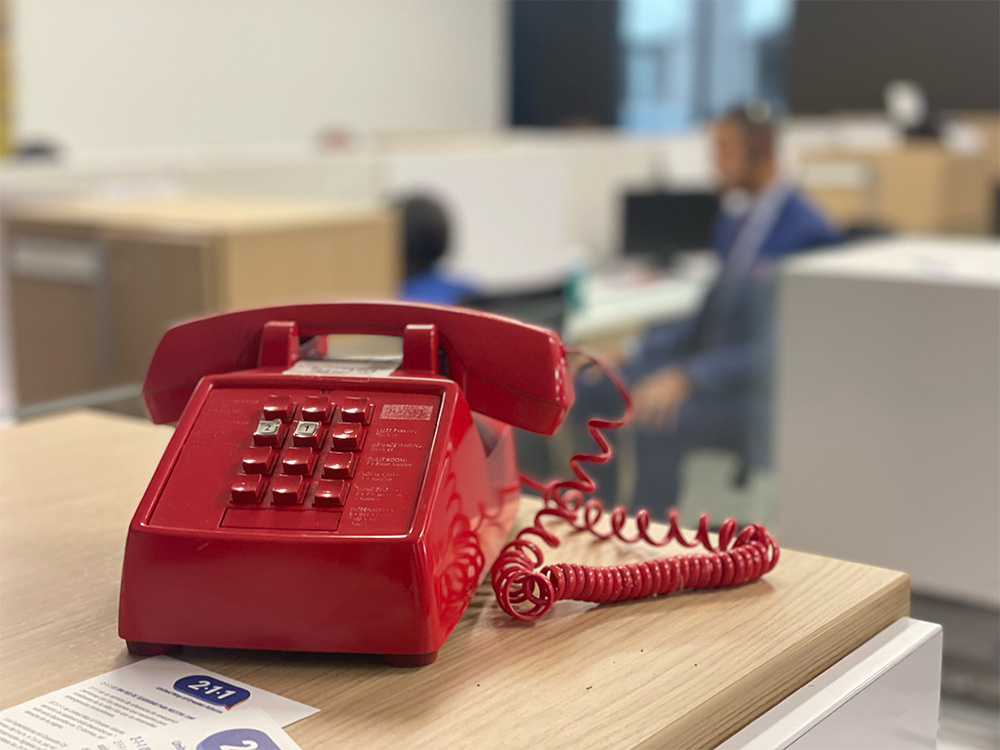
Virgil Williams of Williams Communications, Inc. had a dream of seeing the phone lines at First Call for Help expand their accessibility, offering a 24/7 line of support. He personally lobbied for the 211 digits to be assigned as a designated health and human services phone number, and donated equipment such as the first iconic red telephone to United Way’s office. Bellsouth, now AT&T, additionally helped with advertising and call center training in the leadup to 211’s launch.
On June 12, 1997, Donna sat at her desk by the phone line on the fifteenth floor of United Way’s former office building on Edgewood Avenue.
“My director came in with a bottle of sparkling cider, saying, ‘We got the number! We got the number!’ Everyone just started cheering.” she remembers. “When individuals need help, they could just dial 211 like they would dial 911 or 411 for information 24 hours, seven days a week. That’s the significance of a shorter, three-digit, easy to remember number — it’s really a number to connect to the community.”
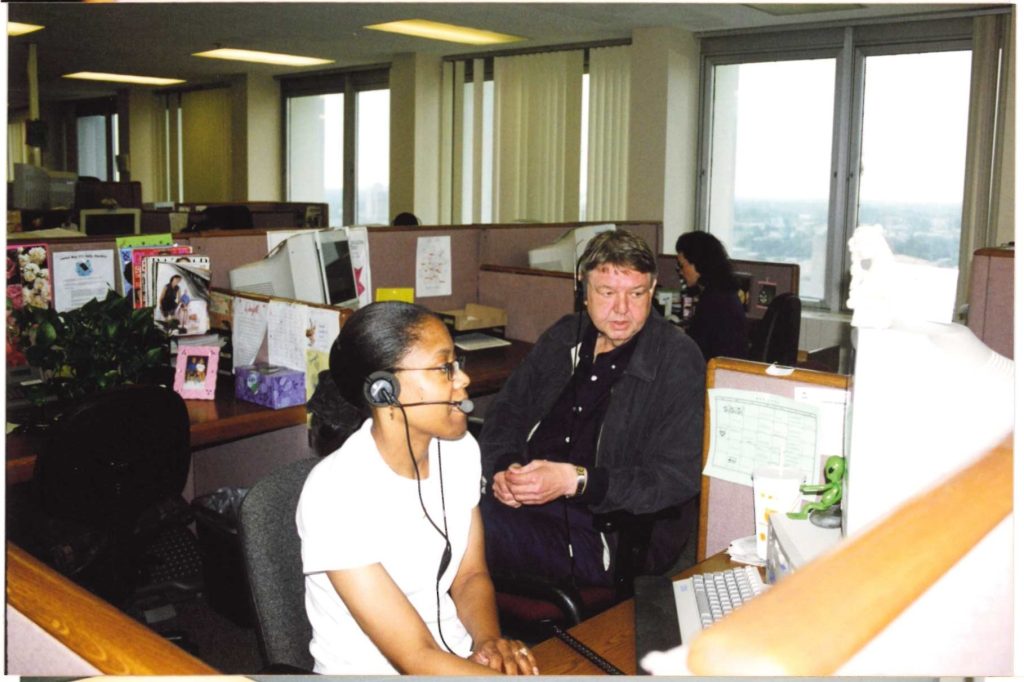
A blueprint for national success
By 2002, the lines were busy almost 24/7, and United Way of Greater Atlanta staffed a department of skilled Community Connection Specialists to answer calls as they come in. The center quickly became a blueprint adopted by agencies across the nation—just five years after launching, 211 was available to call in 12 states across the nation. Today, it serves 99% of the United States.
“With over 300,000 calls expected this year, it is hard to believe how far 211 has come in such a short time. I am happy to see this easy-to-remember number has done so much good for so many people,” said Virgil Williams in 2002.
Today, the 211 team triages almost half a million contacts from the Greater Atlanta area each year. Needs vary widely, ranging from rental assistance and housing resources, utilities help, food pantries, holiday gifts, or even asking about ways to volunteer and give back. For a 211 agent, no two calls are alike, but they are prepared with a database of 2700+ nonprofit partners and resources to point people in the right direction.
>> Read More: Tamesha’s 211 Story
Predicting needs, proactive responses
211’s ability to act as a barometer for shifts in the city sets it apart from other information services. Throughout its history, 211 has had the pulse on the heartbeat of Atlanta, allowing us to leverage partnerships to proactively address needs.
The year 2000 had one of the coldest winters on record paired with lower-than-normal natural gas supplies. Due to an unusual pattern in call volume, 211 agents were able to predict the potential utilities crisis as early as August, giving United Way enough time to tap our partners at AGL Resources (now Southern Company) to raise $538,200 for a gas assistance program for Atlantans in need of help with their bills.
As the effects continued into early 2001, 211 also created a tip sheet to help callers know their rights as a consumer, how to set up payment plans with their gas marketer, and how to recognize predatory fraud practices that started during the season.
By the time the real effects were felt, United Way of Greater Atlanta was well-prepared to help neighbors and administer the gas assistance programs to those who reached out. As predicted, six months later, calls related to gas bills increased by more than 2000%. Between March 1 and May 31, 2001, 211 received 9,366 calls for gas assistance, compared to 356 calls during the same period the previous year.
Just months later, we similarly were able to proactively predict and respond to needs immediately following September 11 based on the initial volume of contacts to 211.
“There were calls of people ready to give whatever they needed to give to help the individuals who were affected. People who couldn’t feed themselves wanted to know where they could go give blood, where they could take some clothing, a blanket,” said 211 Community Connection Specialist Neely Congleton, recalling the first few days after 9/11. But in the weeks following, she remembers those calls shifting to individuals seeking referrals after being laid off from jobs in hospitality and travel industries.
Using 211 as a guide, United Way established a fund called Homefront to address needs immediately following the attacks and educate other foundations on preparing for the economic downturn in the subsequent months.
Tapped for large-scale help
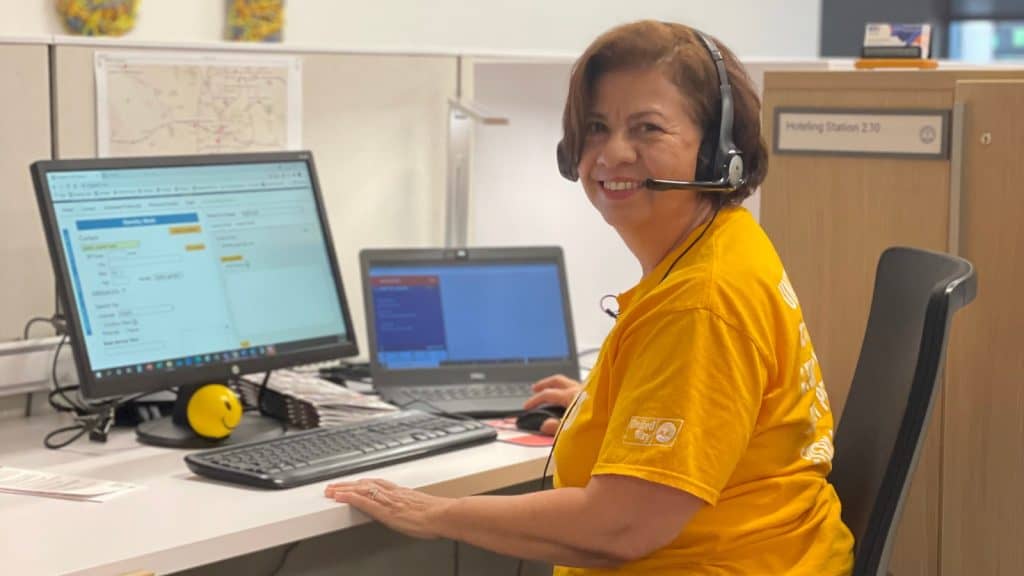
211 agents act as a first line of defense in helping neighbors in need, not just on a human case-by-case level, but also in administering large city-wide—and sometimes even state-wide—relief programs.
In 2010, the Georgia Department of Human Services (DHS) was looking for a partner to administer Fresh Start, a statewide federal relief program in response to the 2008 recession.
Donna, now Vice President of 211, explained that the team wanted to leverage our existing efforts. “They recognized our familiarity and expertise, saying we were the ideal choice to build upon the work we had already started,” she said.
“In a matter of days, we hired at least 85 new people to process all of these cases…It was so much learning and building relationships with other 211s. We were building the plane as we were flying it.”
The 211 team processed 17,000 Fresh Start applications, representing every single county in Georgia, and distributed $20.2 million in 100 days.
Following the success of Fresh Start, 211 was once again tapped to lead the way during the COVID-19 pandemic in 2020. United Way of Greater Atlanta quickly mobilized funding and expanded 211 to meet the demands of the community, and 211 partnered with City of Atlanta to administer the Emergency Housing Assistance (EHA) program. We hosted in-person events and kept the 211 lines open to make sure residents in Atlanta who were impacted by the pandemic were able to receive critical financial assistance.
When needs in the community seem overwhelming, offering hope keeps Donna’s 211 team grounded, some of whom have now been working in the Contact Center for more than 20 years.
“We don’t pretend to have all the answers or make empty promises. But by truly listening without judgment and offering vital resources during their most challenging moments, we can offer a genuine sense of hope to our community,” said Donna.
>> Read More: How 211 offered Nadia hope
Powering 211 for the future
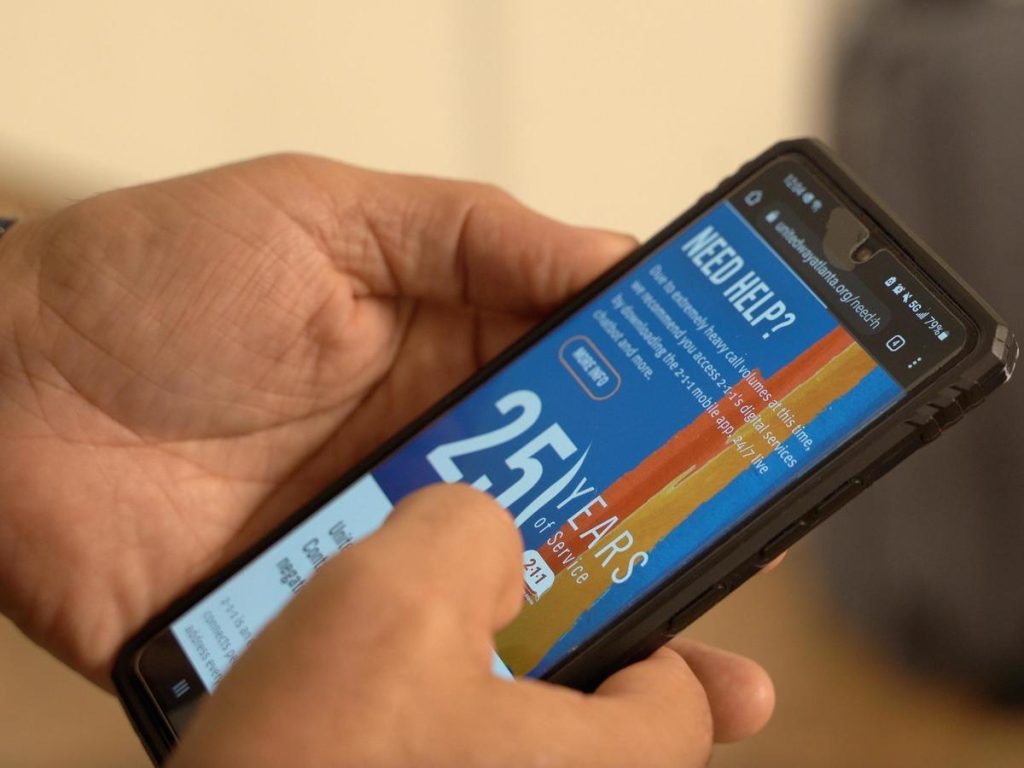
This year, we’re celebrating 120 years of spreading hope across Greater Atlanta. In the last 28 years, the 211 Contact Center has brought that hope closer in reach, just three digits away.
We continue making 211 more accessible with expanded digital access. Today, you can access help not only through the phone lines with our Community Connection Specialists, but also by texting 898-211, visiting 211 online, downloading the 211 app, and using our 24/7 chatbot.
To celebrate this milestone and set up 211 for success for future generations, you can donate today. Your generosity allows us to continue connecting our neighbors to vital resources, one contact at a time.
